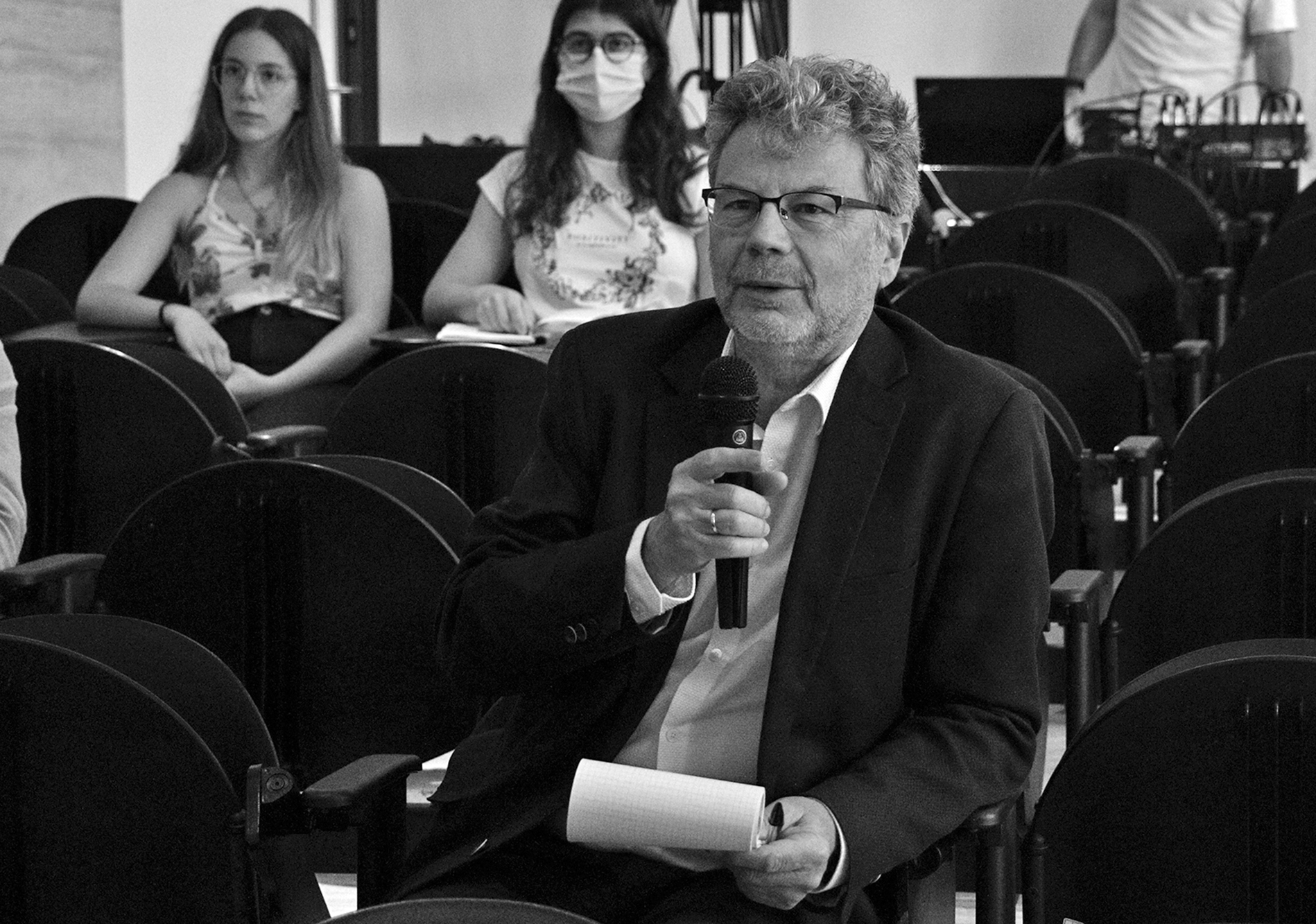NEWS & VIEWS / CHECK OUR PAST EXPERIENCES, LATEST ACTIVITY & UPCOMING EVENTS / NEWS & VIEWS / CHECK OUR PAST EXPERIENCES, LATEST ACTIVITY & UPCOMING EVENTS /
NEWS & VIEWS
NOV’2022
—
PHD DEGREE AWARDED TO ANA V. ALMEIDA
Ana V. Almeida earned her PhD degree from Universidade NOVA de Lisboa after her viva voice examination on November 22nd.
Enrolled in the Radiation Biology and Biophysics Doctoral Training Programme at FCT NOVA since 2018, the research work developed by Ana focused on the study of structural and functional properties of bacterial protein nanocages. These proteins are hollow structures essential for iron homeostasis and cell detoxification which also have great potential for biomedical and pharmaceutical applications.
Ana Almeida presented her work entitled “Functional Characterization and Design of Protein Nanocages” to an evaluation committee presided by Orlando Teodoro, professor at the Universidade NOVA de Lisboa, and constituted by Christian Betzel, professor at the Universität Hamburg, Patrick England, Tenure research scientist at the Institut Pasteur, Søren Vrønning Hoffmann, senior researcher at the University of Aarhus, Bruno J. C. Vieira, researcher at the Universidade de Lisboa, Paulo Limão-Vieira and Alice S. Pereira, both professors at the Universidade NOVA de Lisboa.

// READ MORE ︎︎︎ HERE //
JUL’2022
—
PHD DEGREE AWARDED TO SARVESH KUMAR |
Sarvesh Kumar earned his PhD degree from Universidade NOVA de Lisboa after viva’s examination on July 15th. |
// READ MORE ︎︎︎ HERE //
MAY’2022
—
RABBIT MEETING 2022
The RaBBiT Meeting 2022, held at FCT NOVA on May 9th to 11th, while opened to the participation of all scientific community, was dedicated to students and researchers interested in radiation biology and biophysics. The meeting covered several topics related to training and research, and fostered discussions focused on:
the value of a PhD and career expectations;
cross-disciplinary and complementary training:
network creation, international collaborations and infrastructure availability.
Being a hybrid event, the meeting gathered participants from different institutions such as Richard Zare, professor at Stanford University and the former Portuguese Minister of Science, Technology and Higher education Manuel Heitor, professor at Instituto Superior Técnico.








// READ MORE ︎︎︎ HERE //
APR’2022 — |
NEW STUDY UNVEILS STRUCTURAL DYNAMICS OF PROTEINS INVOLVED IN OXIDATIVE STRESS AND RADIATION RESISTANCEMini-ferritins are a group of proteins that can protect DNA through binding. These are proteins only found in bacteria which confer resistance in stress conditions by preventing the formation of radicals and other toxic species, thus raising bacterial capacity to survive. |
// READ MORE ︎︎︎ HERE //
| NOV’2021 |
ANIONIC STATES OF HEXACHLOROBENZENE PROBED IN ELECTRON TRANSFER EXPERIMENTSHexachlorobenzene (HCB, C6Cl6) has been used as a pesticide and fungicide. Widely used in the end of last century, HCB production has been terminated in several countries. However, it is still a well known byproduct during the manufacture of other chemicals. Several studies show that long-term oral exposure to HCB will cause liver diseases with associated skin leasures and increased cancer incidence. Additionally, it was found in animal studies that oral exposure to HCB can cause cancer of the liver, thyroid, and kidney which led it to be classified as a probable human carcinogen by different cancer research and environmental agencies. |
// READ MORE ︎︎︎ HERE //
OCT’2019 — |
AN OVERVIEW OF THE SPECTROSCOPIC TOOLS USED IN THE ANALYSIS OF SMALL TO LARGE BIOMOLECULESAlice Pereira and Pedro Tavares, co-lab leaders of the Molecular Biophysics Lab at UCIBIO – FCT NOVA, together with Paulo Limão-Vieira lab leader of the Atomic and Molecular Collisions Laboratory at CEFITEC - FCT NOVA, are editors of the most recent book from Springer-Nature: Radiation in Bioanalysis - Spectroscopic Techniques and Theoretical Methods. |

// READ MORE ︎︎︎ HERE //
SEP’2019 — |
1ST NOVA BIOPHYSICA INTERNATIONAL CONFERENCE |
The NOVA Rectorate Building welcomed 100 participants to the first NOVA Biophysica International Conference, which took place between the 4th and 6th of September, 2019. |